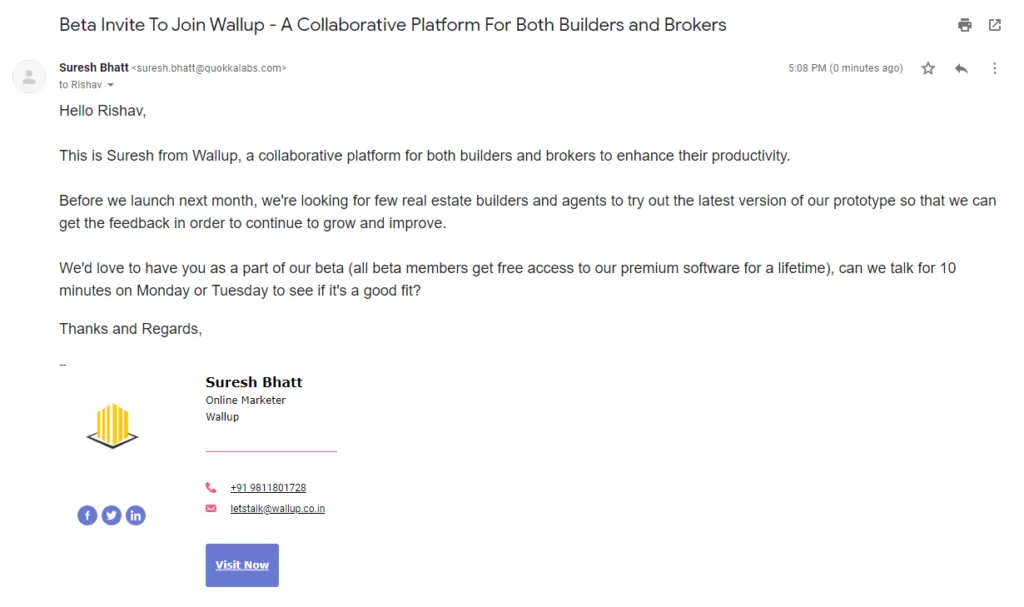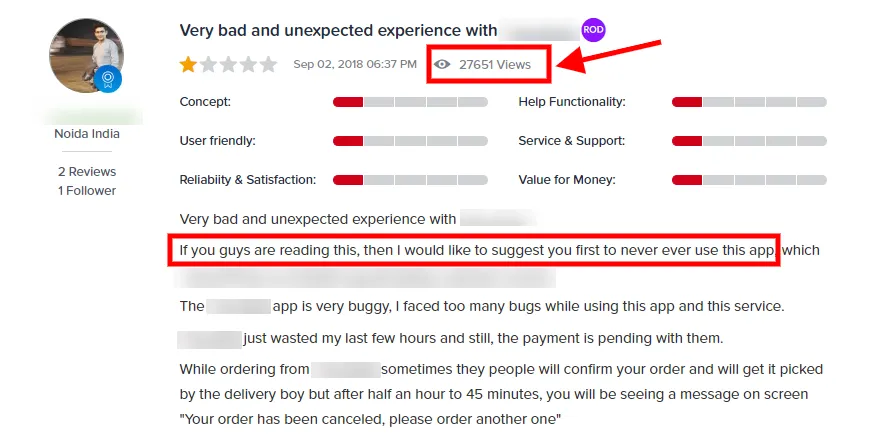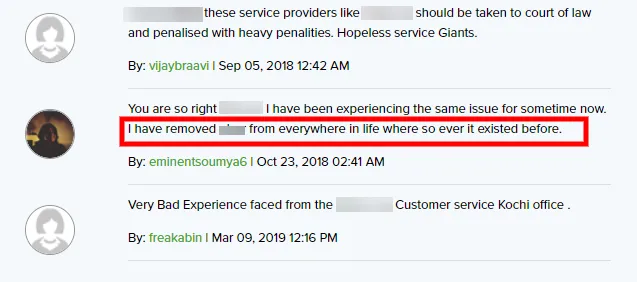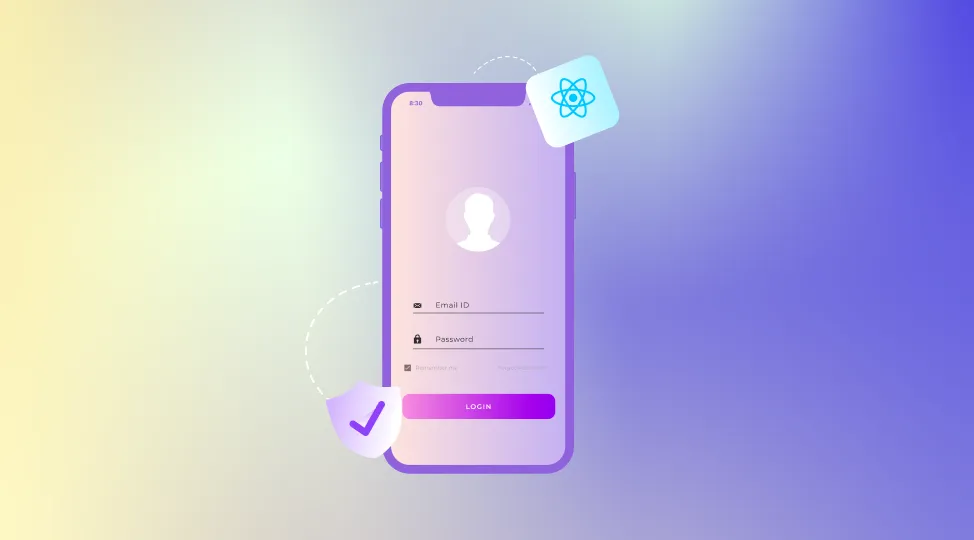While the mobile application ecosystem flourishes, getting lost in the crowd of over 7 million Android and iOS apps available today in the mobile application market is more likely than ever before.
Acquiring new users on your mobile application is always the ultimate challenge. And to make your application stand out, creating a best mobile app marketing strategies is essential.
Before going any further, let's put some numbers in this context.
- 3,482,452 on the Play Store,
- Over 2,226,823 on the Apple Store,
- About 460,619 on Amazon App Store, and
- 669,000 on Microsoft Store.
A mobile application is your silver bullet for increasing your business revenue. Because the mobile application market size has skyrocketed, referring to the past few years. The Global revenue for mobile apps in 2023 increased to USD 318 B and is forecasted to cross an excellent USD 613 B by 2025.
With these numbers in hindsight, mobile applications shall continue to dominate the market in the coming years. But, Going by these numbers, getting your mobile app trending in stores won't be a walk in the park, for sure.
Every famous and successful mobile application you know of today involves astute strategies, Research, hard work, dedication, and planning.
Indeed, it also involved a marketing strategies for mobile apps that was unique in its totality.
Let's get into what mobile app marketing is all about.
Mobile App Marketing Plan for Successful Promotion
Before moving on to the best mobile app marketing strategies, we'd suggest you create a marketing plan overview based on this template for your mobile app promotion.
This template will help you define different aspects of your business to focus on priorities when you market your app.
Below are key points you must consider in your marketing plan to help identify your customers, meet their needs, and stay ahead of the curve. Creating this strategic roadmap for mobile app, that is valuable process that contributes to your app's success.
1. The Mobile App Marketing Plan Template Includes the Following:
- Set Your App Objectives & Goals
- S.W.O.T. Analysis
- Strengths
- What is your app good at?
- How can you stay ahead of the competition?
- Unique selling proposition/points or U.S.P.s (explained later in this article)
- Weaknesses
- What needs to be improved?
- What does your competitor do better than you?
- What's holding you back?
- Opportunities
- What can market trends lead to improved conversions (market goals)?
- What can you use as an advantage for your business?
- Threats
- What could harm your business?
- Any unforeseen market factors/risks?
- Financial Projections for App Marketing
- Figure out an initial budget
- Adjust the budget
- Refine your objectives & promotional expenses based on the budget
- Understand Your Target Market
- Understand the industry
- Measure the market's size
- Create buyers' personas
- Analyze your competition
- Understand the Targeted Audience
- Understand the demographic profile (age, gender, spoken languages).
- Psychographic profile (their interests, behavior, etc.).
- Needs & Wants.
- What Can You Offer?
- User Acquisition: Acquiring new users
- User Retention: Bringing back lost users
- Tracking and Analysis
- Figuring out which app marketing techniques or strategies can give you the highest R.O.I. (Return On Investment)
- Key Performance Indicators (KPIs) of your App Marketing Success
- Pre-launch and post-launch app Advertising Strategies you Plan to Use
2. Pre-Launch Mobile App Marketing Strategies
Be sure to crack the egg and a chicken riddle in planning the pre-launch marketing strategies for mobile app for your app because marketing for your mobile app before launch is non-negotiable.
Thus, it's always better to ensure you've gained many potential users for your app before you launch it.
Keep an eye on the Tech calendar because your product will likely get lost in the noise if you don't.
3. Invest In Market Research
Your first steps toward developing an effective app marketing plan must include understanding the key players in your domain.
You can only strategize your app marketing plan once you completely understand your target audience and competitors. Research is a marketing investment that must be a priority for every business.
If you can gather meaningful data and insights from the market and then compare them, you will boost your chances of cracking the code by knowing what exactly works and what needs to be fixed before your app launch.
Start with creating a spreadsheet of competition analysis and collect every dataset you can throughout the research process.
4. Plan Your App Release Date In Advance
It's human to want your mobile application out in the application marketplace, accessible to the world as soon as possible; after all, it's your baby! But planning a release date well in advance is essential!
You would not want your app released on the same date as the next Apple iPhone or when any other major Tech update is scheduled.
It is essential to monitor the Tech Calendar. Because if you don't, you will probably find your product getting lost.
Setting a well-thought-out launch date for your app will help devise product development deadlines and ensure you get enough time to strategize effective marketing plans around the app launch schedule.
Thus, planning your application release date is an effective mobile app user acquisition strategy you should always consider.
5. U.S.P. Analysis—Your Competitive Edge
Knowing what makes your app unique helps your app thrive in the market.
Knowing your unique selling points (U.S.P.s) can help create a definite mobile application marketing approach. After all, your competitive edge will make users want to install your app.
Here's a way to help you identify your U.S.P.s:
- Invest time in brainstorming what value your app is offering to customers.
- Moving beyond, identify what U.S.P.s competitor's apps are offering.
- Now it's time to compare and rank yourself against your competitors based on these U.S.P.s.
- Once you identify where your app ranks, it's time to develop your marketing strategy based on content focused on those U.S.P.s.
Make sure you also develop a tremendous defending strategy for the U.S.P.s you identified because your competitors are striving hard (just like you!) to research and analyze their competition.
When they discover your U.S.P.s, they want to try & copy them. So, one good way to defend your U.S.P.s is by investing more time & money to take it to a notch above so that most of your competitors need help to keep pace.
And once they've boosted their level, Tada! You'd have already reached the next stage.
6. Beta Testing the Right Way
When your mobile app development team is done building the app with unique features and top-notch UI/UX designs, the next step you follow is sending that app to your team for feedback.
Though your development team is likely to give thumbs-up to the app, they are not the actual users of that application, right?
This is when you should be on the lookout for your beta testers. Identify
They reach out, reward them, and get the genuine feedback you need.

Email outreach template example for the beta test of Wallup web/mobile app
It's imperative to catch hold of the right audience when you are looking for unbiased feedback to collect points/inputs to work and experiment with before the release of your app in the mobile application market.
7. Description Of Your Mobile App
The description of an app on the store only exhibits the first 1-to-2 lines. If users wish to read the full report, they need to tap on read more to read the full description.
Getting your message through in the first 1-to two lines is an art you need to master for users to understand your mobile application better. Only a few would bother to tap on read more to go through the full description.

Try to convey your message in the first 1-2 lines. When writing the full description, mention how your app will simplify a user's life instead of detailing what your app can do.
Create a Website for Your App
It increases brand visibility, credibility, trust & application discoverability.
What would you do if you wanted to know more about a product or service? You would search the web and head to their website.
In the same way, your potential customers would also search for your product on the web if they're interested in it. The discovery of your product's website will cause users to increase their trust in your brand.
Remember, all touchpoints contribute to building a brand reputation.
Fact: Not all people search for mobile apps on the app stores, some
might search for applications on the search engines, and this is where your website comes into play.
A Website Allows You to Provide In-Depth Details About Your Application
Your app store page can only provide limited information, while having a website for your mobile app will enable you to deliver in-depth information about your application to potential customers.
It Allows You to Spread Awareness & Collect Emails
Launching a landing page or website before the application is available in the app marketplace is excellent for spreading awareness & organizing emails of potential customers.
It Opens New Channels for Targeted Marketing
You can promote this website via paid advertisements, social media, email marketing, influencer marketing, etc., so people can know about your application before its launch date. You can already have many potential users for your application when it gets rolled out.
It Allows You to Leverage the Power of Content Marketing
One more important reason you should use a website as a part of your pre-launch app promotional plan is—it allows you to leverage content marketing via a blog, which is very important to spreading the word about your application and keeping your potential users updated & engaged.
Blogging helps you grow your fan base & acquire new users interested in your product. You can consistently publish blog posts surrounding your application features that the users might be interested in.
Based on your objectives & target market, you can choose what kind of website suits your app promotion efforts best—a single-page website (landing page) or a website with a blog.
Spread Early Buzz on Social Media & Generate Curiosity
The core purpose of the mobile application you have created is to let more and more people know about it and install it on most devices. Getting a better download conversion rate is critical to get the most.
Creating a buzz around social media before your app launch can help you build brand awareness to get a better conversion rate when you hit on paid app advertising strategies on social media.
Understand this—when people come across the cost-per-install advertising you are running for your application, they are likelier to install the app if they have seen your brand before.
Also, creating a buzz on social media helps you build a community around your app before its launch date so that you can track & target these interested users when you finally launch the product.
The popularity of social media giants like Facebook (Meta), Twitter, YouTube, Instagram, etc., has made them a perfect channel for new apps to enter the market.
Pick a few social media platforms that suit your application
marketing goals well and start creating hype around your app before its launch date. Create a marketing plan to engage & distribute content to prospective users for your mobile app.
Below Are Some Best Social Media Strategies for Your Mobile App Promotion:
- Post frequently and show the audience the benefits of your application and why they should install it.
- Use relevant hashtags to reach more audiences and post around your brand hashtags.
- Get influencers for your app & feature their reviews.
- Encourage engagement with contests, giveaways, etc.
- Remember to spark a conversation when someone shows interest.
Create A Promo Video
If a Picture is Worth a Thousand Words, What'd a Video Worth?
People strive for visuals; therefore, video marketing would be a great addition to your app advertising strategy. Videos are straightforward to consume and help you avoid the overabundance of textual information.
You can leverage the video content across multiple promotional channels, like a website landing page, app preview, YouTube, social media, and other mobile app advertisement campaigns.
Here are some benefits of video marketing to find out why it's important to include video marketing strategy in your mobile app marketing plan template:
- It boosts conversion and sales.
- It gives a glorious return on investment (R.O.I.).
- Video builds brand trust and credibility.
- Videos are appealing to users.
- You can briefly explain your product in videos than in other mediums.
- You also get the privilege of targeting lazy buyers with video marketing.
- Video content encourages social shares.
1. App Store Optimization (A.S.O.) – A Crucial Part Of Mobile App Marketing Strategy
A.S.O. continuously optimizes mobile apps to rank them higher and increase discoverability on the app store search results.
The higher your mobile application ranks on the store, the more visible it is to potential users, thus increasing the possibility of downloads.
Few Components that Influence A.S.O.:
- Application's name and description.
- Preview screenshot quality.
- Size of the application.
- App Compatibility.
- Frequency of App Updates.
- The number of downloads.
- Ratings and Reviews.
2. Post-Launch Mobile App Marketing Strategies
Now that we've designed the pre-launch promotion marketing strategies for mobile apps, it's time to devise a solid post-launch marketing plan to help your app get the exposure it needs to succeed in the mobile application market.
3. Value of Retention >>> Acquisition
Acquiring new users for your mobile app is always desirable. However, a successful marketing strategy for mobile apps doesn't end when the ink is dry on a paid acquisition marketing contract.
Only some people are lucky enough to have a thousand dollars budget as part of their paid user acquisition strategy for their mobile application.
Every new user your app gains for you shall not disappear into the dust (never to hear from you again). Otherwise, you will soon see people dropping off your application from their mobile devices.
It would help if you always had a keen eye on user engagement. Monitoring this will help you understand how practical and convenient the UI/UX of your mobile application is and how it can be improved continuously to retain users.
Retaining users of your app is a game-changer in the mobile application industry. The more users you retain, the higher the number of installs you attain.
4. Mobile App Paid Promotion Strategies for Successful Promotion
Paid promotion is one of the most effective forms of direct marketing. Be ready to churn out a handsome portion of your marketing budget to promote your mobile app via app advertising channels.
This will pay you rich dividends while you try to bring your app to the top to reach the maximum potential users. Below are some of the best mobile app marketing strategies for advertising channels to supercharge your marketing efforts:
- Facebook Ads: An excellent option for a mobile app promotion because of the advanced targeting options.
- App Store Search Ads: More than 60% of downloads of an app are gained via app store search results.
- C.P.I. Advertising Platforms: An excellent app advertising strategy to focus on.
- Google Universal App Campaigns
- Pay Per Click
- Press Releases
- Influencer Marketing: Let the industry influencers promote your app to their audience.
5. Provide Lovable Customer Support
It would help if you rethought treating the users of your mobile application.
High-quality and lovable customer service results in an increase in loyal customers for life.
You must follow up with every user-facing issue with your mobile app.
A lack of response to issues faced by mobile application users might result in frequent uninstalls, so make sure your development team responds to and resolves every query they receive from the users.
You may evaluate enabling features like personalizing your email dashboard by labeling your customer queries as a priority, allowing users to opt out from push notifications anytime they want, providing in-app chat support options, etc.
6. User Reviews Play A Huge Role
We live in a review-based society. People's opinions play a vital role in
deciding to install your app. Concerning the mobile application industry, reviews are responsible for the following:
- The visibility of your application in the application stores searches results concerning keywords.
- How likely will your mobile application be featured in the mobile application market?
- The installation rate of the mobile application (Likelihood of a visitor installing the mobile app after its discovery).
- Credibility, engagement, and loyalty for the mobile application.
Research shows that almost 90% of people read through online reviews.
Below is an example that clearly shows how reviews are critical for any
business.
Critical review posted by a user:

80% of people read this review and found it very useful:

Users dropping off from the application:

Over 80% trust online reviews as much as a friend's recommendation, and they make these decisions very quickly. About 68% of people form opinions after reading between 1 and 6 online reviews.
7. Measure Some Important App Metrics
It is essential to enable an app analytics feature in your application right from the beginning. This will help you track important metrics for the success of your mobile application.
Determining what metrics help your app succeed in the mobile application market would be best. Once you've figured that out, keep tracking and analyzing it. These will help you make necessary adjustments when something is working well or making a user drop off from your application.
Define KPIs, analyze data, and ensure you're putting in every possible effort for sustained gains.
Below are a few metrics you may track:
- How often are users using your app in a day?
- Is there any particular path/section where users bounce back (exiting)?
- Which feature do users like the most?
- Daily and Monthly Active Users.
- Avg. Revenue Per User (A.P.R.U.) = Total Revenue Generated / active users.
All in a Nutshell – How To Successfully Market An App
Your pre-launch and post-launch app promotional strategies for mobile app development will pave the way for the success of your mobile app and help you acquire and retain users alike if executed correctly. Your mobile application is an ace up your sleeve, and you must ensure you get that right. This is one piece most people miss to focus on.
People often get blown away by the power of marketing and tend to let loose on the product. If your app doesn't tick the right boxes, your marketing efforts will not bear fruit for long.
With these marketing strategy plans, you will achieve user acquisition targets for your mobile app, but what about the retention rate? You need to ensure that you build a great app so that the users installing your app will want to keep it on their mobile devices.
Get in touch with best mobile app development company and get help to build an app analytics section inside the application. Let's connect today!
F.A.Q.s:
Q1: What Is Mobile App Marketing, And Why Is It Essential?
Mobile app marketing promotes mobile applications through various channels to increase downloads, user engagement, and revenue. It is essential because, with millions of apps in the app stores, it can be challenging to stand out and reach the target audience. Effective mobile app marketing can help increase visibility, drive downloads, and boost revenue.
Q2: What Are the Key Challenges in Mobile App Marketing?
The key challenges in mobile app marketing include increasing app visibility, standing out among competitors, optimizing the app for the app store, attracting and retaining users, and measuring the effectiveness of marketing efforts.
Q3: What Are Some Effective Strategies for Promoting Mobile Apps?
Some of the effective best mobile app marketing strategies include app store optimization (A.S.O.), social media marketing, influencer marketing, paid advertising, content marketing, email marketing, and referral marketing.
Q4: How Can Social Media Be Leveraged for Mobile App Marketing?
Social media can be leveraged for mobile app marketing by creating engaging and shareable content, running targeted ads, collaborating with influencers, using social media listening tools to monitor brand mentions and feedback, and building a community around the app.
Q5: Is It Necessary to Have a Website for Mobile App Marketing?
While having a website is unnecessary for mobile app marketing, it can help improve app discoverability, provide additional information about the app, and showcase user testimonials and reviews.
Q6: How Can App Store Optimization (A.S.O.) Help Improve App Visibility?
App store optimization (A.S.O.) involves optimizing various elements of an app's listing in the app store to improve its visibility and ranking. By optimizing factors such as the app title, description, keywords, and screenshots, A.S.O. can help improve the app's visibility and attract more downloads.
Tags
Mobile App Marketing Plans
Expert Tips
App Marketing
Mobile app Marketing



 Facebook
Facebook
 Twitter
Twitter
 LinkedIn
LinkedIn
 Pinterest
Pinterest










